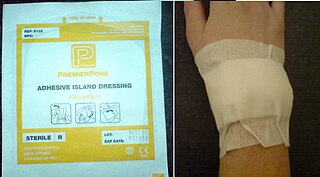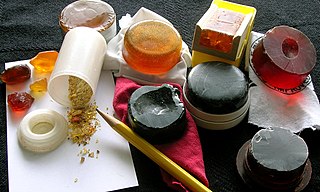
Orange juice is a liquid extract of the orange tree fruit, produced by squeezing or reaming oranges. It comes in several different varieties, including blood orange, navel oranges, valencia orange, clementine, and tangerine. As well as variations in oranges used, some varieties include differing amounts of juice vesicles, known as "pulp" in American English, and "(juicy) bits" in British English. These vesicles contain the juice of the orange and can be left in or removed during the manufacturing process. How juicy these vesicles are depend upon many factors, such as species, variety, and season. In American English, the beverage name is often abbreviated as "OJ".

The National Trust for Places of Historic Interest or Natural Beauty, commonly known as the National Trust, is a charity and membership organisation for heritage conservation in England, Wales and Northern Ireland. In Scotland, there is a separate and independent National Trust for Scotland.

The National Trust for Scotland for Places of Historic Interest or Natural Beauty, commonly known as the National Trust for Scotland, is a Scottish conservation organisation. It is the largest membership organisation in Scotland and describes itself as "the conservation charity that protects and promotes Scotland's natural and cultural heritage for present and future generations to enjoy".

The Wildfowl & Wetlands Trust (WWT) is an international wildfowl and wetland conservation charity in the United Kingdom. Its patron is Prince Charles, and its president is Kate Humble.

A charitable trust is an irrevocable trust established for charitable purposes and, in some jurisdictions, a more specific term than "charitable organization". A charitable trust enjoys a varying degree of tax benefits in most countries. It also generates good will. Some important terminology in charitable trusts is the term "corpus", which refers to the assets with which the trust is funded, and the term "donor", which is the person donating assets to a charity.

Trustee is a legal term which, in its broadest sense, is a synonym for anyone in a position of trust and so can refer to any person who holds property, authority, or a position of trust or responsibility to transfer the title of ownership to the person named as the new owner, in a trust instrument, called a beneficiary. A trustee can also refer to a person who is allowed to do certain tasks but not able to gain income, although that is untrue. Although in the strictest sense of the term a trustee is the holder of property on behalf of a beneficiary, the more expansive sense encompasses persons who serve, for example, on the board of trustees of an institution that operates for a charity, for the benefit of the general public, or a person in the local government.

Terrence Higgins Trust is a British charity that campaigns about and provides services relating to HIV and sexual health. In particular, the charity aims to end the transmission of HIV in the UK; to support and empower people living with HIV, to eradicate stigma and discrimination around HIV, and to promote good sexual health.

A charitable organization or charity is an organization whose primary objectives are philanthropy and social well-being.

The Prince's Trust is a charity in the United Kingdom founded in 1976 by Charles, Prince of Wales, to help vulnerable young people get their lives on track. It supports 11 to 30-year-olds who are unemployed and those struggling at school and at risk of exclusion. Many of the young people helped by The Trust are in or leaving care, facing issues such as homelessness or mental health problems, or have been in trouble with the law.

A dressing is a sterile pad or compress applied to a wound to promote healing and protect the wound from further harm. A dressing is designed to be in direct contact with the wound, as distinguished from a bandage, which is most often used to hold a dressing in place. Many modern dressings are self-adhesive.

Teenage Cancer Trust is a cancer care and support charity in the UK that exists to improve the cancer experience of young people aged 13–24. Founded in 1990, the charity's key service is providing specialist teenage units in NHS hospitals. It also trains and funds staff who are teenage cancer specialists. The units are dedicated areas for teenage and young adult patients, who are involved in their concept and creation. Medical facilities on the units are equipped with computers, TVs and game consoles.

The Recreation Ground is a large open space in the centre of Bath, England, next to the River Avon, which is available to be used by permission from the Recreation Ground Trust for recreational purposes by the public at large but particularly the people of Bath and surrounding areas.

The Churches Conservation Trust is a registered charity whose purpose is to protect historic churches at risk in England. In practice, the Trust works to prevent any deterioration in the condition of the buildings in its care and to ensure they are in use as community assets. Local communities are encouraged to use them for activities and events and the buildings provide an educational resource, allowing children and young people to study history, architecture and other subjects.
A hydrocolloid dressing is an opaque or transparent dressing for wounds. A hydrocolloid dressing is biodegradeable, breathable, and adheres to the skin, so no separate taping is needed.

The Rare Breeds Survival Trust is a conservation charity whose purpose is to secure the continued existence and viability of the native farm animal genetic resources (FAnGR) of the United Kingdom. It was founded in 1973 by Joe Henson to preserve native breeds; since then, no UK-native breed has become extinct.
The National Biodiversity Network (UK) (NBN) is a collaborative venture set up in 2000 in the United Kingdom committed to making biodiversity information available through various media, including on the internet via the NBN Atlas—the data search website of the NBN.
The Animal Health Trust (AHT) was a large national independent charity in the United Kingdom, employing over 200 scientists, vets and support workers. Its objectives were to study and to cure diseases in companion animals, and to advance the teaching and practice of veterinary art and science. It was founded in 1942 by Dr WR Wooldridge CBE, FRCVS, and was awarded a Royal Charter on 29 July 1963. The Queen was the charity's patron from 1959 until the end of 2016, and the Princess Royal is its president. Based in Newmarket in Suffolk, it was a registered charity under English law and received no government funding. Following fundraising issues exacerbated by the Coronavirus pandemic, the charity was forced to close its doors and enter liquidation on 31 July 2020
Gums and Stabilisers for the Food Industry is a biennial conference held in Wrexham, North Wales, since 1981, on the application of hydrocolloids in the food industry. Presentations at the conference cover recent advances in the structure, function and applications of gums and stabilisers, how these materials are used in industrial processes, and also educational material on the subject. The proceedings of each conference have been published, with the most recent published by the Royal Society of Chemistry. The conference series is organized by the Food Hydrocolloids Trust.

Abietic acid dermatitis is a contact dermatitis often seen in association with musical instruments.
Double 'O' is a charity established by the rock group The Who in 1976. Operation of the charity was assumed by Pete Townshend in 1983 when band initially retired from active touring. The trust disburses funds for such causes as relief of drug and alcohol addiction, domestic violence and sexual abuse. It also provides funds for music education, emergency disaster relief and young people's prison reform.













